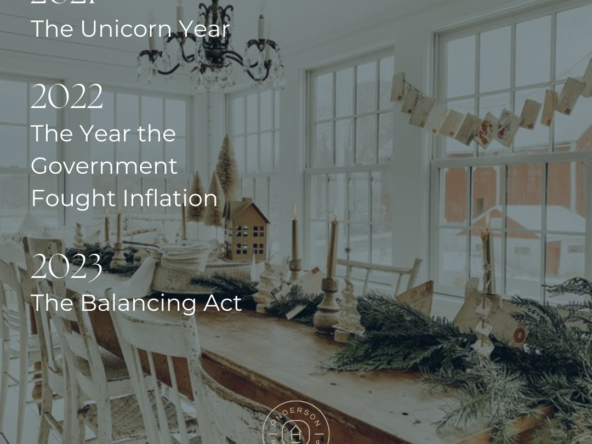2020 and 2021… unprecedented years with a unique set of circumstances that have drastically impacted almost every part our lives. The real estate market has been no exception and has seen some surprising developments for many professional forecasters. Are you wondering how this global pandemic continues to impact the housing market today? And how it will impact our future market?
The housing market is, and has always been cyclical, with variables such as the economy, immigration, interest rates, consumer behaviours, and now global pandemics, having major impacts on those cycles. These conditions affect what type of market we see based on either the surplus or shortage of housing.
A quick run-down on Seller's vs. Buyer's & balanced markets:
A seller’s market occurs when there is a surplus of buyers, and a shortage of housing product available for that demand. This leads to increasing house prices, short listing periods where homes tend to sell very fast, and an increased likelihood of multiple offers (including offers with no conditions) being placed on a home. Under these conditions, sellers have more negotiating power.
A buyer’s market is effectively the opposite with a surplus of homes for sale and a shortage of buyers in the market. Home prices tend to be lower, have longer listing times, and buyers have more negotiation power with a higher likelihood of conditions being included in offers.
A balanced market occurs when the amount of housing product and number of purchasers is very similar or “balanced”, creating more of an even playing field when it comes to negotiations.
How did Covid-19 drive us into a Seller's Market?
“Over the past several years, record levels of international immigration (not including 2020), low interest rates, and an increasingly middle-aged Millennial cohort have all fueled strong household formation and housing demand in Canada. Recall that prior to COVID-19, the number of available listings nationally was already at a 14-year low and the national number of months of inventory on the eve of the lockdowns had fallen to below four months (sellers market territory). COVID-19 has only served to supercharge trends that were already present.” – Canadian Real Estate Association
The assumption that the current market is ALL Covid-19 driven is actually incorrect. This market was brewing for many years and has been accelerated and heightened by the current pandemic.
Consumer behaviour during this pandemic has been mainly impacted by value shifts related to changes in employment. Specifically, prior to the pandemic, daily commuting distance was a significant factor in determining where someone would choose to live. Now that working remotely has become more prevalent and accepted in the work force, many employers have shifted their policies, and are allowing their employees to work from home post-pandemic. Commuting distance is no longer a limiting factor in the search for a home, and buyers have increasingly begun to look outwards, at greater distances from their place of employment.
So what will the future of real estate look like?
To come to our conclusions, we took the CREA predictions and many other credible market statistics into consideration, but we also placed more weight on the trends we’re currently seeing first-hand on the ground, in our everyday experience.
We predict (in the GTA) that the seller’s market will continue but shift to a slightly less competitive market in the summer of 2021. We believe we won’t see any major market shifts or impacts until at least 2022. We trust that the low interest rates, that are confirmed to continue into 2022 will perpetuate the current momentum but that the vaccine rates, and new mortgage stress test rules will also impact consumer behaviour. We have already seen a small “steadying” with April 2021 being the first reported month since the beginning of the pandemic to see the average sale price not increase month-over-month. Keep in mind, April 2021 was still a record-breaking historical month, but it’s an indicator that housing inventory and number of willing purchasers may be starting to shift.
In summary, it’s a great time to sell your home! If you have a very desirable product (ex. backing green space/ravine/waterfront) you likely won’t see a major impact on your selling experience in 2021. If your home is slightly less desirable to the masses (ex. backing a highway or industrial operation), you may see a shift in the number of interested purchasers, and your time on market will likely increase into the late Summer/Fall of 2021. If you are looking to purchase it is still a more challenging time in terms of competition, but we are not likely to see a “crash” or a significant decrease in housing prices for the foreseeable future, and into 2022.
If you want to know how your home may fair, or the nuances of the specific market you are interested in purchasing in (they do significantly differ!), we are experts and here to help. These markets are tricky to navigate, but with a trusted professional on your side the experience should be smooth sailing!




